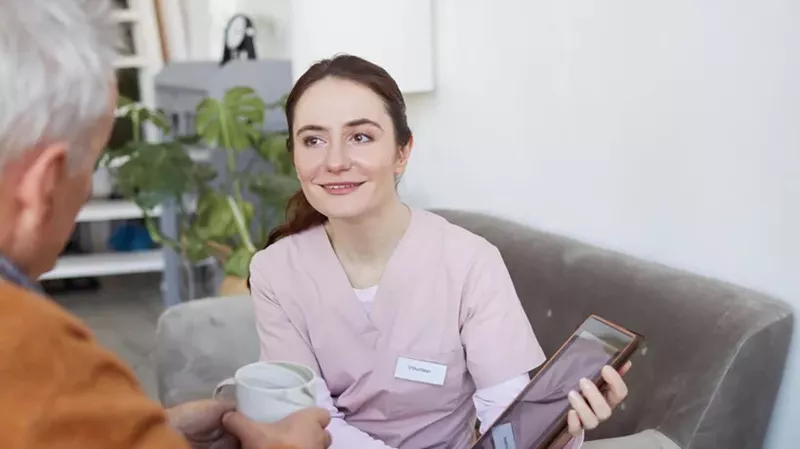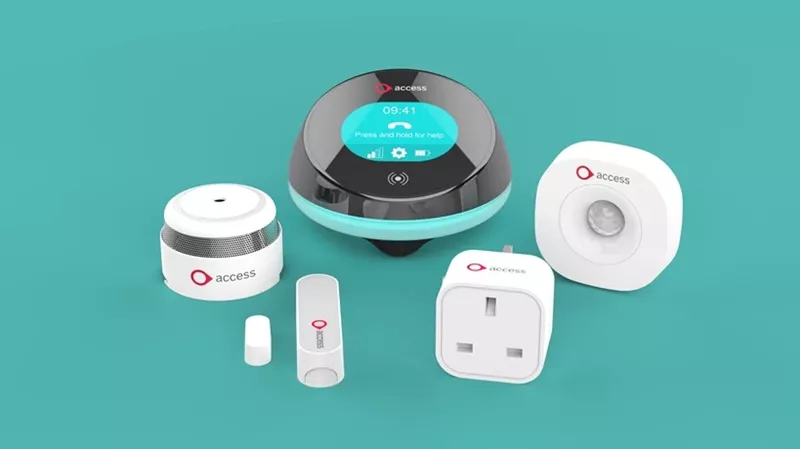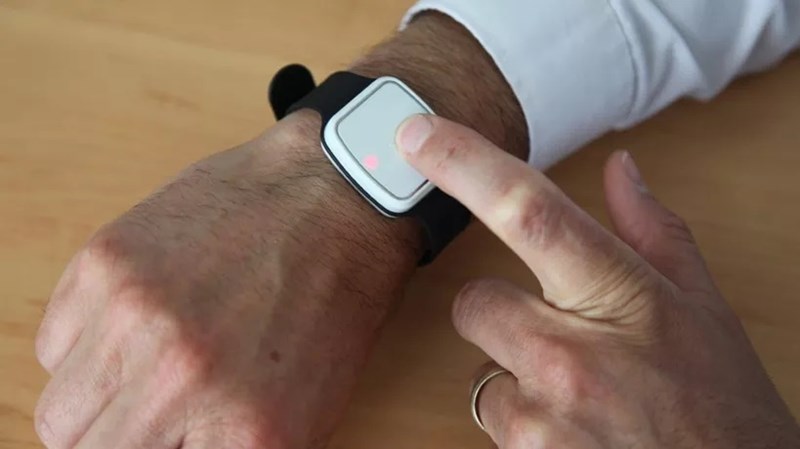
What is telecare and why it's important
Telecare communications offers a variety of ways to support and manage individuals health, whilst maintaining their independence. Telecare could save the NHS £1.2 billion, but why is that significant?
This guide will help answer your questions on what telecare is, why is it important, and what benefits individuals, their families, and the healthcare system can experience by using telecare equipment.
 10
10

Written by Claire Wardle
What is telecare?
Telecare refers to monitoring systems that can use a range of electronic devices, such as personal alarm buttons worn on the body, or motion detection.
It is an unobtrusive way of monitoring individuals to help service users live with greater safety and independence in their own home.
What is telecare for?
Telecare is a non-invasive way to keep people safe in their own homes preventing the need for individuals to go into care homes. It aims to retain independence and confidence in individuals, whilst maintaining confidence for families too.
More advanced monitoring, alarm and analytics systems can help predict issues even before they arise, reducing subsequent pressure that it’s endlessly building on the NHS.

Who uses telecare?
Telecare communications are often used in individuals’ homes for anyone who may be at risk from living independently and require more monitoring and support to ensure their safety and wellbeing. Digital telecare communications offer a way of people and technology to come together to create joined-up and person-centred care.
Like all technology, it has improved over time and now telecare communications can be offered remotely through either synchronous or asynchronous means.
A variety of people can also benefit from telecare services such as:
- Any patient wanting to expand their access to care
- Help manage a recovery or severe injury impacting mobility
- Help general wellbeing and reassurance that help is nearby if needed
What is the importance of telecare and how does it work?
Telecare services are important as it can not only makes an individual feel safe but their families too. The expert digital telecare software technology allows behaviour of an individual to be tracked constantly allowing early warning signs and unusual behaviour to be triggered to the appropriate call of contact.
Telecare systems work effectively because emergency contacts can be managed easily. For example, signals from alert systems can be sent to neighbours, family members, and emergency services. Some telecare systems can identify if an individual is conscious or not and highlight the significance of the alert by contacting emergency services straight away.
A vital part of telecare systems is routed through dedicated call centres, making it easy to keep in touch when a query or problem arises so it can be resolved quickly.

Download our guide to learn how Technology Enabled Care (TEC) works and how it aims to transform social care for the better.
What is the difference between telehealth and telecare?
Telecare is clearly merging with telehealth as both popularity and technology continues to advance and here you can read more about what is telehealth. The benefits they both provide individuals’ and their families as well as healthcare industries is significantly important.
The services they both provided help manage conditions at home alleviating pressure and demand on the NHS, whilst ensuring patient safety. But it is important to remember the difference between them, why they work well, and how they merge together.
- Telehealth – uses a wide range of technology and services for healthcare professionals to improve healthcare delivery. It includes non-clinical services as well as clinical including: provider training, administrative meetings, and medical education.
- Telecare – uses communication technology to provide support from a distance and unlike telehealth or telemedicine it is continuous and automatic.
- Telemedicine – is a subset of telehealth that concentrates on clinical electronic communications and software instead of in-person consultations. It helps reduce waiting times by offering virtual visits for a variety of appointments including: follow-ups and medication management.
What are telecare services?
Telecare services, equipment, and monitoring can differ depending on both the specific products and an individuals’ needs.
The 24/7 monitoring allows activations to be escalated quickly and automatically to the agreed responder and there are a variety of products people can choose from:
- Sensors – fall detectors, bed and chair occupancy sensors
- Alarms – personal alarms such as pendants or bracelets
- Keysafes
- Smoke detectors

Sensors
- Reduce common issues by sensing the persons environment and activate when unusual behaviour happens
- Track and monitor locations in the house and highlight any unusual length of time spent in one room like the bathroom
- Bed sensors - can activate signals when someone hasn’t returned to bed after a predetermined time and are very useful if an individual is prone to falling.
- Fall detectors – can send alerts when an individual has fallen no matter where they are in the house to initiate help is needed
Alarms
- Provides a simple set up and can easily be plugged into sockets and work within 24 hours of ordering
- They often provide a powerful microphone and speaker to allow the user to converse with the 24/7 monitoring centre
- Pendants and bracelets – can be worn and easily activate an alarm if assistance is needed. They are small and discreet and give someone the required help with a click of a button. Majority are waterproof meaning it does not have to be removed when having a bath or shower.
Keysafes
- Metal boxes which are attached to the exterior wall of an individual’s home and it can store house keys behind a security code for emergencies.
Smoke Detectors
- Telecare features on a smoke detector features all the benefits of a standard smoke detector, but if an alarm is triggered the appropriate call of contact will be notified.
- Some telecare features can also track if a house or room temperature is too hot or too cold too

What are the benefits of telecare?
Like previously mentioned different telecare equipment can benefit individuals and their families in different ways depending on their condition and the products that are used.
But, overall there are 4 main benefits which every service user and healthcare provider will experience when using telecare services:
- People feel safer knowing that someone is always nearby or an alert away if they are in need of care or are in danger.
- Fewer routine check-ups can occur for some people as conditions are easily tracked and monitored continuously in their own home.
- Patients may not spend as much time in hospitals after falls because people will be notified straight away instead of being left immobile for longer periods of time.
- Telecare offers more self-managed care and encourages individuals’ engagement in their health plans.
Concluding what is telecare
Telecare is merging with telehealth and eventually overtime will be parts of the same field. The future of the next generation of telecare is exciting, and will help many families that are struggling to look after a vulnerable family member.
Here at Access TEC our digital telecare software provides a full-service social alarm ecosystem to monitor activities of day-to-day living whilst ensuring sustainable care delivery in the home. We focus on supporting individuals to accelerate care provision in two ways: allow the care location to happen whenever and wherever, and create preventative and personalised care plans to maintain the safety of individuals.
Our aim is to join technology and people together to empower preventative and proactive care, and our latest integration to our care planning solution, we are well on our way to transforming the TEC space for the better.
This integration allows care workers full visibility of smart alerts and alarms from our Access Assure Home Hub in our care planning mobile app. This, in turn, allows the shift to proactive care deliveries to become a reality.
Now care workers have better visibility and flexibility to make better data-led decisions to reduce risks and identify issues before something more critical takes place. This, in turn, helps to delay future care needs, provide reassurance to loved ones and the individual, and increase independence.
Discover the benefits of our digital telecare and how our technology enables independent living goals to be achieved at the fraction of the price.


